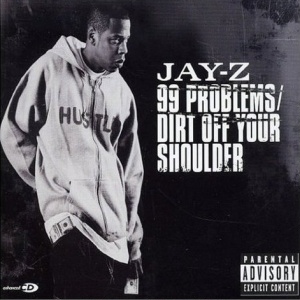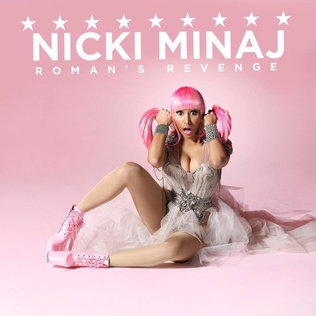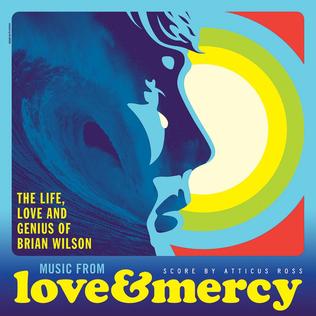To have a chip on one's shoulder is to hold a grudge or grievance that readily provokes disputation.
To have a chip on one's shoulder is to hold a grudge or grievance that readily provokes disputation.


This idiom traces its roots back to a custom that was known in North America since the early 19th century. The New York newspaper Long Island Telegraph reported on 20 May 1830 "when two churlish boys were determined to fight, a chip [of wood] would be placed on the shoulder of one, and the other demanded to knock it off at his peril". A similar notion is mentioned in the issue of the Onondaga Standard of Syracuse, New York on 8 December 1830: "'He waylay me', said I, 'the mean sneaking fellow—I am only afraid that he will sue me for damages. Oh! if I only could get him to knock a chip off my shoulder, and so get round the law, I would give him one of the soundest thrashings he ever had'."
Some time later in 1855, the phrase "chip on his shoulder" appeared in the Weekly Oregonian, stating "Leland, in his last issue, struts out with a chip on his shoulder, and dares Bush to knock it off". In American author Mark Twain's 1898 manuscript of Schoolhouse Hill , character Tom Sawyer states his knowledge of the phrase and custom when he says, "[I]f you want your fuss, and can't wait till recess, which is regular, go at it right and fair; put a chip on your shoulder and dare him to knock it off." [1]
In Canada, the custom is well described at St. Peter Claver's Indian Residential School for Ojibway boys in the town of Spanish, Ontario:
By custom, the challenger, usually one of the intermediates, anxious to prove his worth or avenge some wrong, would deliberately seek out his foe with a wood chip or flat stone on his shoulder, placed there either by his own hand or by that of somebody else.
The challenger might further provoke his opponent by issuing a dare for him to knock off the chip. The opponent might then display his bravery and contempt by brushing the cheek of the challenger lightly as he did so. In more formal cases, a second might take the chip and present the chip to his man who would then place it on his own shoulder. The boys would then square off and fistfight like boxers. [2] [3]

Eilleen Regina "Shania" Twain is a Canadian singer-songwriter. She has sold over 100 million records, making her one of the best-selling music artists of all time and the best-selling female artist in country music history. Her success garnered her several titles, including the "Queen of Country Pop". Billboard named her as the leader of the '90s country-pop crossover stars.

Dennis Carl Wilson was an American musician who co-founded the Beach Boys. He is best remembered as their drummer and as the middle brother of bandmates Brian and Carl Wilson. Dennis was the only true surfer in the Beach Boys, and his personal life exemplified the "California Myth" that the band's early songs often celebrated. He was also known for his association with the Manson Family and for co-starring in the 1971 film Two-Lane Blacktop.
In poetry, internal rhyme, or middle rhyme, is rhyme that occurs within a single line of verse, or between internal phrases across multiple lines. By contrast, rhyme between line endings is known as end rhyme.

Alexander James McLean is an American singer, dancer, actor and a founding member of the pop vocal group Backstreet Boys.

The two fights between Muhammad Ali and Sonny Liston for boxing's World Heavyweight Championship were among the most controversial fights in the sport's history. Sports Illustrated magazine named their first meeting, the Liston–Clay fight, as the fourth greatest sports moment of the twentieth century.

Luke Morley is the guitarist, chief songwriter and producer for the hard rock band Thunder from 1989 to present. Previous to that he was a member of 1980s group, Terraplane who subsequently became Thunder.

Tom Sawyer is a 2000 animated musical comedy film directed by Paul Sabella and Phil Mendez. Released direct-to-video on April 4, 2000, the film was produced by MGM Animation. It is the only MGM Animation production not to available exclusively through Warner Home Video worldwide. This is also the final MGM Animation film before shutdown in 2002. It is an adaptation of Mark Twain's 1876 novel The Adventures of Tom Sawyer, with a cast of anthropomorphic animals instead of humans. Most of the characters' voices are generally performed by country music singers.

Landing on Water is the 15th studio album by Neil Young. The album was released on July 21, 1986, by Geffen Records.

"Go ahead, make my day" is a catchphrase from the 1983 film Sudden Impact, spoken by the character Harry Callahan, played by Clint Eastwood. The iconic line was written by John Milius, whose writing contributions to the film were uncredited, but has also been attributed to Charles B. Pierce, who wrote the film's story, and to Joseph Stinson, who wrote the screenplay. In 2005, it was chosen as No. 6 on the American Film Institute list AFI's 100 Years...100 Movie Quotes.

"99 Problems" is the third single released by American rapper Jay-Z in 2004 from The Black Album. It was released on April 27, 2004. The chorus hook "I got 99 problems, but a bitch ain't one" is taken from the Ice-T single "99 Problems" from the album Home Invasion (1993). The hook was coined during a conversation between Ice-T and Brother Marquis of Miami-based 2 Live Crew. Marquis used the phrase in the 1996 2 Live Crew song "Table Dance".
"Don't Talk (Put Your Head on My Shoulder)" is a song by American rock band the Beach Boys from their 1966 album Pet Sounds. Written by Brian Wilson and Tony Asher, it is a ballad about nonverbal communication between lovers. Musically, the song is distinguished for its chromaticism, the use of a string sextet, and its key ambiguity. It is among the most harmonically complex songs that Wilson ever composed.
This is a list of running jokes and catchphrases in the 1950s British radio programme The Goon Show.

Carrie Luz Rodriguez is an American singer-songwriter and the daughter of Texan singer-songwriter David Rodriguez and Texas painter Katy Nail, and is the granddaughter of prolific Texas essayist Frances Nail. She sings and plays the fiddle, mandobird and tenor guitar.

"Got My Mojo Working" is a blues song written by Preston "Red" Foster and first recorded by R&B singer Ann Cole in 1956. Foster's lyrics describe several amulets or talismans, called mojo, which are associated with hoodoo, an early African-American folk-magic belief system.

"Everybody in Love" is a song by English boyband JLS from their self-titled debut album (2009). The song was released as a digital download on 1 November 2009, followed by a physical release the following day. The song became the band's second number one single in the UK on 8 November 2009, with a total of 600,000 copies being sold so far in the UK, earning the single a Platinum certification. The song was released to U.S. Mainstream Top 40 radio on 23 February 2010, but failed to chart on Billboard Hot 100.

"Roman's Revenge" is a song by Trinidadian-born rapper Nicki Minaj featuring American rapper Eminem, performing as their respective alter egos Roman Zolanski and Slim Shady. Taken from her debut studio album Pink Friday (2010), written alongside producer Swizz Beatz. It was released exclusively on October 30, 2010 through the United States iTunes Store, as a promotional release preceding the album's release.

"Middle Finger" is a song by American synthpop band Cobra Starship. The track was written and produced by Norwegian production team Stargate and features Pittsburgh rapper Mac Miller. It was released as the third promotional single from their fourth studio album, "Night Shades" and later as the second official single.

Matthew Bair, known professionally as Matthew Koma, is an American singer, songwriter, DJ and record producer. Songs written by Koma include "Spectrum" and Grammy Award-winner "Clarity", both performed by Zedd. Koma has collaborated with Hardwell, Zedd, Miriam Bryant, Sebastian Ingrosso, Alesso, Afrojack, Tiësto, Vicetone and Ryan Tedder of OneRepublic.
Chapters from My Autobiography are 25 pieces of autobiographical work published by American author Mark Twain in the North American Review between September 1906 and December 1907. Rather than following the standard form of an autobiography, they comprise a rambling collection of anecdotes and ruminations. Much of the text was dictated.

Music from Love and Mercy is the soundtrack album to Bill Pohlad's film of the same name about the Beach Boys' songwriter-musician-producer and co-founder Brian Wilson. The album was released by Capitol Records on August 14, 2015. Selections from Atticus Ross's original film score were included in addition to song performances featured in the film. The closing track, "One Kind of Love", was written by Wilson specially for the film.